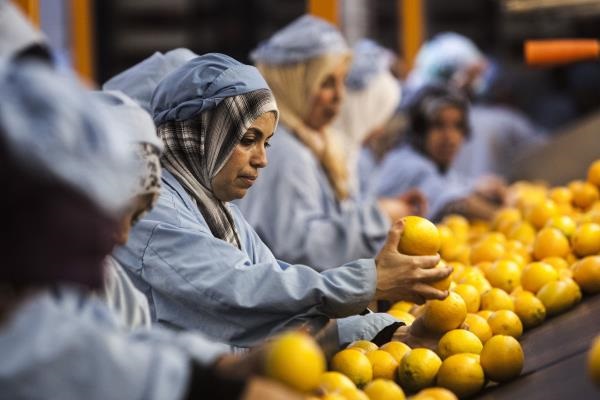
2 November 2015, Rome - FAO and the World Trade Organization (WTO) agreed today to strengthen their cooperation to promote international food trade and safety in ways that improve peoples' nutrition and allow small-scale producers to have better access to international agriculture markets.
"We look forward to ensuring fair trade of agricultural and food products through this stronger (FAO-WTO) cooperation," FAO Director-General José Graziano da Silva said in remarks made to his WTO counterpart, Roberto Azevêdo during an event at the UN food agency's headquarters.
"On the one hand trade is likely to play an increasing role in meeting the growing demand from food-deficit countries. On the other hand, greater trade openness may undermine the capacity of local people to produce their own food," the FAO Director-General added.
Graziano da Silva warned that failure to reach a balanced solution on issues relating to production and trade of agricultural products could derail the international community's recently agreed sustainable development goal to eradicate world hunger.
For his part Azevêdo stressed that at the WTO, "we seek to ensure that the global trading system works for all, that it is fair and balanced," in a way "which supports growth and development and allows people to access the goods and services that they need" including food.
"When I visit developing countries, especially in Africa...business people tell me about the difficulties they face in meeting the required standards," the WTO Director-General said, adding that it is essential to provide capacity building for producers in developing countries, an area of work where his Organization and FAO are seeking to deepen their collaboration.
Azevêdo referred to the 10th WTO Ministerial Conference in Nairobi on 15-18 December 2015, where the role of agriculture - especially in development and in improving the lives of people in least developed countries - is high on the agenda.
Issues for discussion include addressing trade restrictions that bear on imports, such as the lowering of tariffs, the need to minimize domestic agricultural subsidies and, the "distortions these programs produce," Azevêdo said, as well as the need to eliminate export subsidies.
The WTO Director-General expressed hope that some agreement would be reached in Nairobi on the issue of export subsidies. This would mark "an extremely significant breakthrough," and would be especially important for developing and least developed countries.
Strengthened cooperation, new report planned
Graziano da Silva and Azevêdo both underscored the increase in cooperation between FAO and the WTO. This includes deepening their collaboration on trade and food safety, including a joint publication in 2016 which would deal with sanitary and phyto-sanitary (SPS) measures that curb the spread of plant and animal diseases during the transport for trade of agricultural products.
"Our [WTO] agreement on the Application of Sanitary and Phytosanitary Measures names the FAO/WHO Codex Alimentarius and the FAO International Plant Protection Convention as standard-setting organizations in these matters" underlined Azevêdo.
Other areas where the two organizations are seeking to reinforce their joint efforts include the Standards and Trade Development Facility (STDF), capacity development initiatives to assist countries in the implementation of the Codex Alimentarius or "Food Code"which develops harmonized international food standards that protect consumer health and promote fair practices in food trade, and country level assistance to facilitate trade in safe and nutritious food.